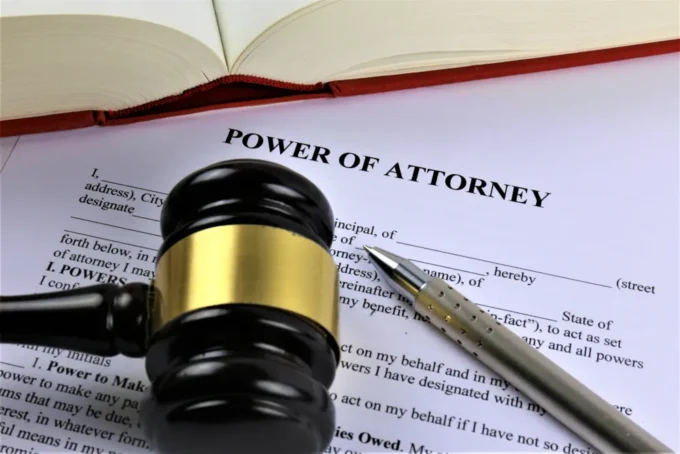In our daily lives, there may come a time when we need someone to act on our behalf for specific matters. A Non-Durable Power of Attorney can serve this purpose by legally appointing an agent, or attorney-in-fact, to handle tasks for us. The primary benefit of this legal document is that it grants the agent authority to act only for a designated period or until the principal revokes it.
This type of power of attorney is particularly useful for situations where we need temporary representation, such as managing financial transactions while we’re away. The scope of authority is limited to what is explicitly outlined in the document, ensuring that both we as principals and our agents understand the extent and limitations of their power. It ceases to be effective if the principal becomes incapacitated, making it crucial to specify the duration and terms clearly.
Understanding the revocation process is equally important. We need to acknowledge that the principal retains the right to revoke the power at any time, as long as they are capable of making such a decision. To maintain clarity and legality, both the creation and termination of this power should be documented formally, ensuring all parties are aware of the status of the agreement. Learn more about Non-Durable Power of Attorney.
Understanding Power of Attorne

Power of Attorney (POA) is a critical legal document that allows one person to make decisions on behalf of another. It grants significant authority in areas such as financial and medical decisions. Understanding the types, roles, and scope of POA can help us ensure proper management of personal affairs during incapacity.
Types of Powers of Attorney
There are several types of powers of attorney, each serving a unique purpose. General Power of Attorney gives broad powers to the agent to manage financial decisions and transactions. Durable Power of Attorney remains effective even if the principal becomes incapacitated, ensuring continued management of affairs. Meanwhile, a Medical Power of Attorney provides authority to make healthcare decisions, often included in estate planning. Limited Power of Attorney allows authority for specific transactions or timeframes, which can be especially useful for financial decisions. These diverse types ensure that individuals can tailor a POA to fit their specific needs.
Roles and Responsibilities
Agents appointed under a power of attorney have distinct roles and responsibilities. They must act in the principal’s best interests, managing affairs as specified in the document. For instance, with a general or durable POA, agents could handle tasks such as paying bills or managing investments. Medical POAs require agents to make critical healthcare decisions in the event of the principal’s incapacity. Agents must comply with state laws and maintain transparency in their actions to avoid conflicts. A breach of fiduciary duty can lead to legal consequences, highlighting the importance of choosing trustworthy individuals for these roles.

Scope and Limitations
The scope of a POA varies greatly depending on its type. A limited POA is confined to specific actions, while a durable or general POA might cover a range of financial or healthcare decisions. Each POA must clearly outline what an agent can and cannot do, adhering to state laws. For example, a medical POA might specify treatment preferences, whereas a financial POA allows for broad management of assets but may limit gifting authority. These documents are vital tools in estate planning, providing clarity and guidance during unforeseen circumstances. Recognizing the limitations ensures that the principal’s wishes are respected and their best interests protected.
Executing and Terminating a Non-Durable Power of Attorney
In this section, we will discuss the creation, execution, and termination of a Non-Durable Power of Attorney (POA). We’ll detail the necessary steps for making it valid, how to terminate under specific circumstances, and the process involved in revocation.
Creating a Valid POA
To create a valid Non-Durable POA, we need comprehensive understanding of legal documents involved, as they grant a designated agent legal authority over various matters. It’s crucial to clearly state the extent of authority, covering areas such as financial matters, real estate, insurance, and business transactions.
We must sign the POA document in the presence of a notary public to ensure its legality. A carefully considered estate plan should accompany this to protect our wishes if we become incapacitated. Consulting an estate planning lawyer can further ensure all legal standards are met.
Circumstances of Termination
The Non-Durable POA typically terminates upon specific events. If we become incapacitated, its authority ceases, unlike a durable POA. Additionally, the POA ends if a particular task or transaction specified within is completed.
We should remain aware that any update to our will may influence POA termination. It’s wise to integrate these considerations into our broader financial plan to maintain control over our affairs and ensure proper delegation of decision-making power.
Revoking a Non-Durable POA

Revocation of a Non-Durable POA is a straightforward process, but it must be executed correctly to ensure effectiveness. To revoke, we must draft a revocation document, explicitly stating the withdrawal of the granted powers to the designated agent.
It’s essential to notify the agent and any third parties involved, such as banks or legal services, to prevent misuse of authority. We should record the revocation with the same rigor used when creating the initial POA, maintaining copies with all parties concerned, including financial institutions holding our stocks or real estate interests.









